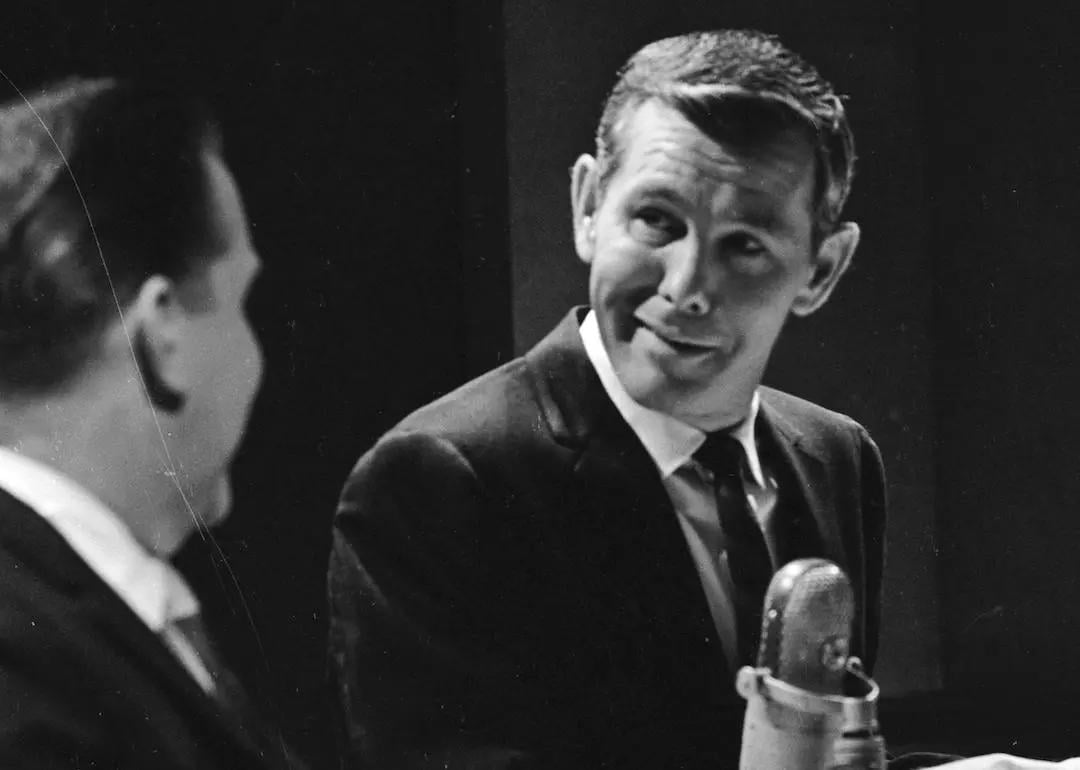
Best animated movies of the 21st century, according to the Oscars
Best animated movies of the 21st century, according to the Oscars
Animation has come a long way since the turn of the century, and advancements in technical animative abilities have come with a rise in cultural appreciation for animated films as well as their corresponding prestige and significance in popular culture.
Indeed, it wasn't until 2001 that the Academy Awards, which still serves as a barometer for what is considered prestigious in global cinema, began awarding nominees and winners for the best animated films each year. In the 18 years since, very different films have taken home the coveted bronze statue on Oscar night. Some of the movies deal with plucky royals on quests with unlikely bands of allies, while others deal with ogres learning to love and be loved.
Some of the films have contained their impact primarily to the cinema, and others have gone on to spark significant cultural moments and inspired musicals, ice-dancing shows, and countless Halloween costumes. While Pixar has dominated the landscape, other studios like Disney have also had smash hits.
Stacker compiled data on the 18 movies given the Academy Award for Best Animated Feature since the category was initiated in 2001. Letterboxd user ratings are out of five, Metascores are out of 100, and IMDb user ratings are out of 10. The films are organized chronologically, and the year represents the year the film was released in the U.S. and not the year of the Oscars ceremony.
Read on to learn about these 18 movies and how animation is just as capable as live-action films in depicting what it's like to be alive.
2001: Shrek
- Directors: Andrew Adamson, Vicky Jenson
- Letterboxd: 3.76
- Metascore: 84
- IMDb user rating: 7.8
- Runtime: 90 min
One of the most beloved animated films of all time, the titular character of “Shrek,” a friendly ogre, was originally meant to be voiced by comedic legend and "Saturday Night Live" mainstay Chris Farley. When Farley died in 1997, Shrek’s voice went to Mike Myers.
2002: Spirited Away
- Director: Hayao Miyazaki
- Letterboxd: 4.45
- Metascore: 96
- IMDb user rating: 8.6
- Runtime: 125 min
“Spirited Away” was written without a script. Filmmaker Hayao Miyazaki has said the film was written in his drawings, and that he had no idea where the plot would lead when he began drawing. “The film makes itself and I have no choice but to follow,” he explained.
2003: Finding Nemo
- Directors: Andrew Stanton, Lee Unkrich
- Letterboxd: 4.06
- Metascore: 90
- IMDb user rating: 8.1
- Runtime: 100 min
“Finding Nemo” features a clownfish named Marlin trying to get back to his son is beloved by audiences, and its titular character became an instantly recognizable character and voice. Actor Geoffrey Rush physically held his tongue while recording some of his scenes to get just the right inflection.
2004: The Incredibles
- Director: Brad Bird
- Letterboxd: 4.11
- Metascore: 90
- IMDb user rating: 8.0
- Runtime: 115 min
Although “The Incredibles” dazzled audiences in 2004, the genesis for the film came over a decade before. Filmmaker Brad Bird first had the idea for a film about a family of superheroes in 1993, but didn’t reach out to Pixar for seven years. He has said seeing the animated film “Toy Story” was instrumental in pushing him to finally pitch the project.
2005: Wallace & Gromit: The Curse of the Were-Rabbit
- Directors: Steve Box, Nick Park
- Letterboxd: 3.57
- Metascore: 87
- IMDb user rating: 7.4
- Runtime: 85 min
"Wallace & Gromit: The Curse of the Were-Rabbit" may have taken home Oscar gold in 2005, but that didn't mean parts of its marketing didn't need tweaking. Indeed, one town in the United Kingdom had to remove the word "rabbit" from the film's posters, due to a local superstition prohibiting the use of the word. Suggested alternative names included "noodle-poodle."
2006: Happy Feet
- Directors: George Miller, Warren Coleman, Judy Morris
- Letterboxd: 2.83
- Metascore: 77
- IMDb user rating: 6.4
- Runtime: 108 min
2006’s “Happy Feet” follows the very human trials and tribulations of a group of emperor penguins. The film is beloved not just by the Academy, but also by celebrities. To wit, the musician Prince first prohibited the filmmakers from using his song, "Kiss," but after seeing a screener of the film, he allowed the song to be used and also wrote additional music.
2007: Ratatouille
- Directors: Brad Bird, Jan Pinkava
- Letterboxd: 3.97
- Metascore: 96
- IMDb user rating: 8.0
- Runtime: 111 min
Pixar’s “Ratatouille” follows a rat who dreams of becoming a chef and won the hearts of audiences and critics alike. But despite the film’s Oscar nod, not every detail in the film was perfect. To save on time, Pixar animators didn’t include any of the rats’ toes.
2008: WALL·E
- Director: Andrew Stanton
- Letterboxd: 4.12
- Metascore: 95
- IMDb user rating: 8.4
- Runtime: 98 min
The story of an animate trash-compactor robot and his cockroach friend took place in space posed a unique problem: How do filmmakers depict humans living in zero gravity? The filmmakers were originally going to depict humans as blobs, based on what NASA had said humans would look like, but ultimately pulled back from the idea, which they believed audiences would find too strange.
2009: Up
- Directors: Pete Docter, Bob Peterson
- Letterboxd: 4.05
- Metascore: 88
- IMDb user rating: 8.2
- Runtime: 96 min
“Up,” which features a curmudgeonly old man and a young stowaway boy in a balloon house, captured audiences’ hearts. The source of some of the most heartwarming moments the duo shared? Home movies the writers found on the internet and eBay.
2010: Toy Story 3
- Director: Lee Unkrich
- Letterboxd: 4.06
- Metascore: 92
- IMDb user rating: 8.3
- Runtime: 103 min
When the "Toy Story" gang reunited for a third go-round in 2010, it was to send their owner, Andy, off to college, before finding themselves curbed for donations. Characters from earlier "Toy Story" films made their way into this third installment, and the filmmakers took pains towards accuracy. A grown-up version of the "mean kid" from the original movie, Sid, is an adult in the same skull t-shirt and voiced by the same actor.
2011: Rango
- Director: Gore Verbinski
- Letterboxd: 3.38
- Metascore: 75
- IMDb user rating: 7.2
- Runtime: 107 min
The tale of a sheltered chameleon living as a family pet undergoing an identity crisis captured audiences around the world and Oscar voters alike in 2011. However, not everyone was pleased. Anti-smoking groups said the over 60 instances of smoking in the film promoted smoking, and they unsuccessfully petitioned for the film to thus have an R rating rather than a PG.
2012: Brave
- Directors: Mark Andrews, Brenda Chapman, Steve Purcell
- Letterboxd: 3.34
- Metascore: 69
- IMDb user rating: 7.1
- Runtime: 93 min
2012’s “Brave” tells the story of a plucky Scottish princess looking to carve an independent path in defiance of age-old traditions. The film required Pixar to develop two new software programs, one of which was explicitly designed to allow 1,500 strands of the princess’s hair to move at the same time.
2013: Frozen
- Directors: Chris Buck, Jennifer Lee
- Letterboxd: 3.35
- Metascore: 74
- IMDb user rating: 7.5
- Runtime: 102 min
2013’s “Frozen” was a smash hit with audiences and critics alike. The film has spawned sequels, musicals, and endless Halloween costumes. Its popularity had another side effect—a major bump in the number of parents who named their children Elsa, after the film’s primary character.
2014: Big Hero 6
- Directors: Don Hall, Chris Williams
- Letterboxd: 3.76
- Metascore: 74
- IMDb user rating: 7.8
- Runtime: 102 min
Robots have sometimes been portrayed negatively in fantasy films, but such is not the case in “Big Hero 6,” in which a robotics prodigy assembles a band of robots to fight a masked enemy. The model for the robots? At least one of them was modeled after baby penguins, which shuffle like the film’s robot Baymax.
2015: Inside Out
- Directors: Pete Docter, Ronnie Del Carmen
- Letterboxd: 3.96
- Metascore: 94
- IMDb user rating: 8.2
- Runtime: 95 min
"Inside Out" is a bold, experimental animated film in which a young girl's emotions are anthropomorphized into actual characters. The film originally gave all of the emotions human names—sadness was Misty, anger was Ira—but the writers eventually decided to let the emotions simply be themselves, emotive names and all.
2016: Zootopia
- Directors: Byron Howard, Rich Moore, Jared Bush
- Letterboxd: 3.82
- Metascore: 78
- IMDb user rating: 8.0
- Runtime: 108 min
“Zootopia” portrays a world in which animals live in a city, much like humans. The film was the longest Disney had made since "Fantasia," and some of its characters were based on those from earlier animated films, including the “Lion King.” The character of Lionheart is based on Disney's Mufasa.
2017: Coco
- Directors: Lee Unkrich, Adrian Molina
- Letterboxd: 4.19
- Metascore: 81
- IMDb user rating: 8.4
- Runtime: 105 min
“Coco” tells the story of a young boy living in a family that has banned music embarking on a quest to be a musician anyway. The story takes place in the fictional Land of the Dead. When the film’s writers were putting the story together, they took a trip to Mexico, where they learned that marigold plants play a significant role in the Day of the Dead ceremonies. As such, marigolds are the only living plants in the film’s landscape.
2018: Spider-Man: Into the Spider-Verse
- Directors: Bob Persichetti, Peter Ramsey, Rodney Rothman
- Letterboxd: 4.45
- Metascore: 87
- IMDb user rating: 8.4
- Runtime: 117 min
2018’s “Spider-Man: Into the Spider-Verse” opens up a world in which there are multiple Spider-Men, who must learn to live and work together. The film is meant to take place in a universe that is familiar but slightly altered, which the animators took great lengths to depict in exacting detail. For example, a Chance the Rapper poster in the hero’s bedroom features the rapper wearing a hat with the number four on it, instead of the actual number on the hat, which is three.



